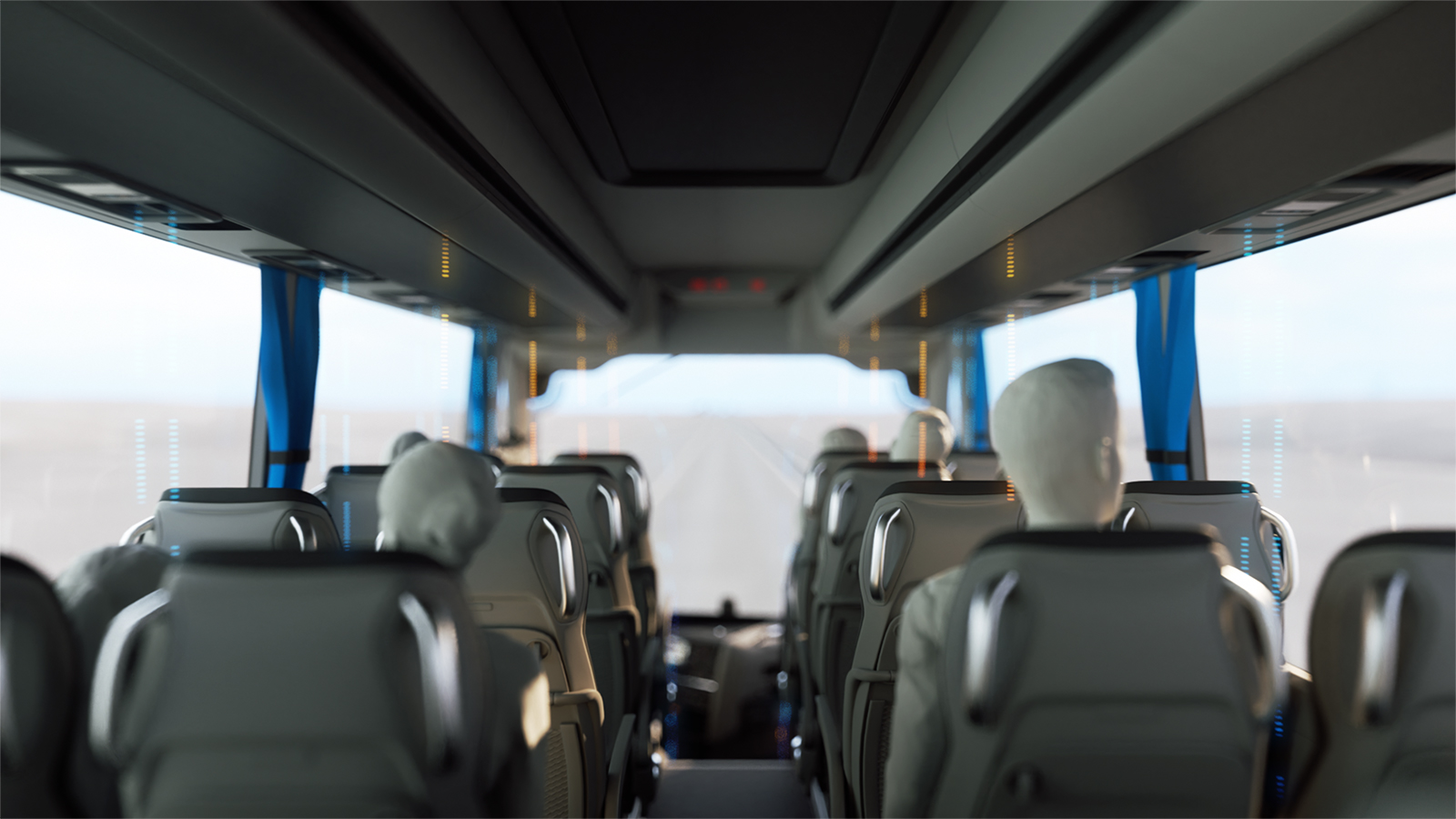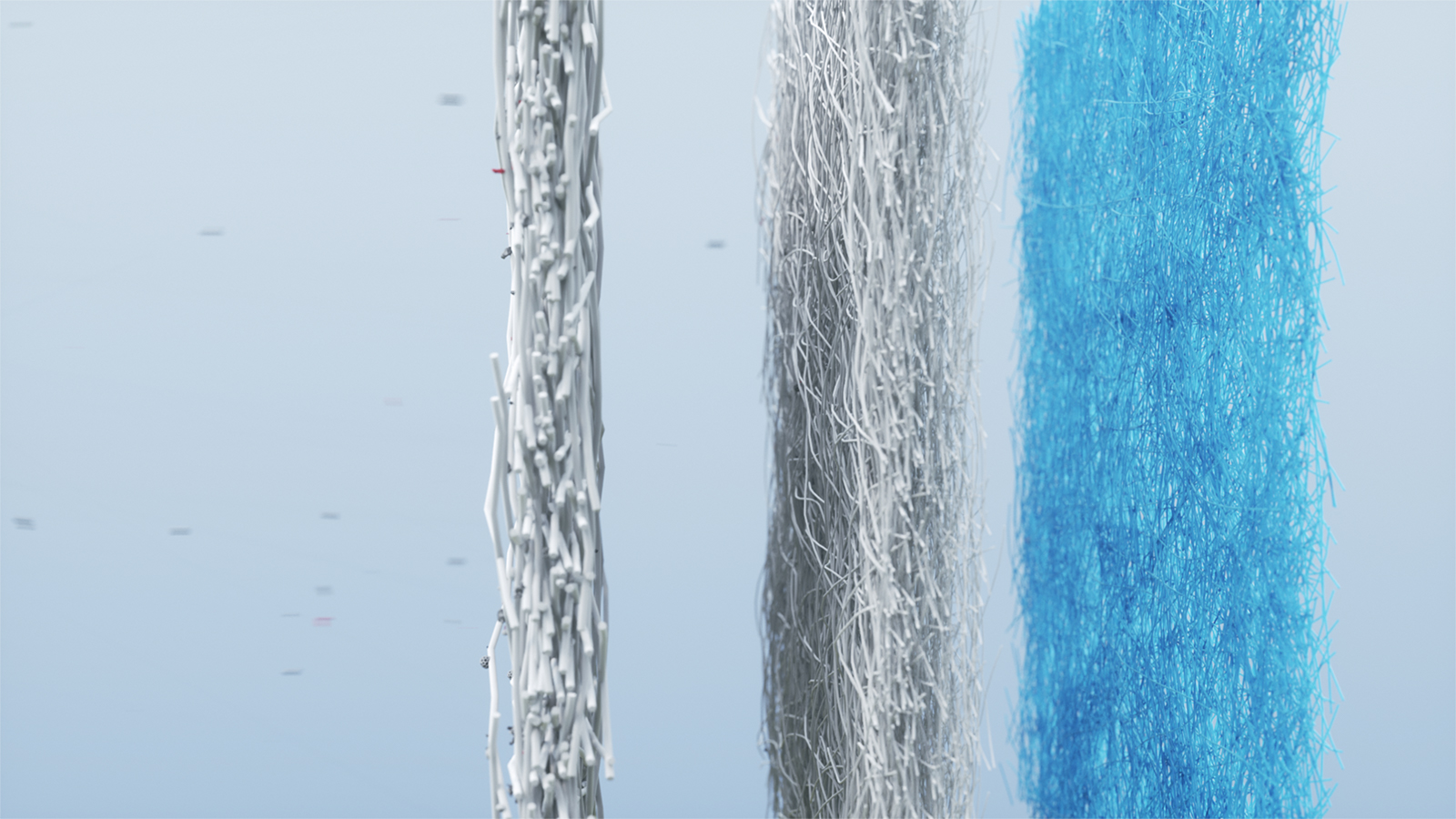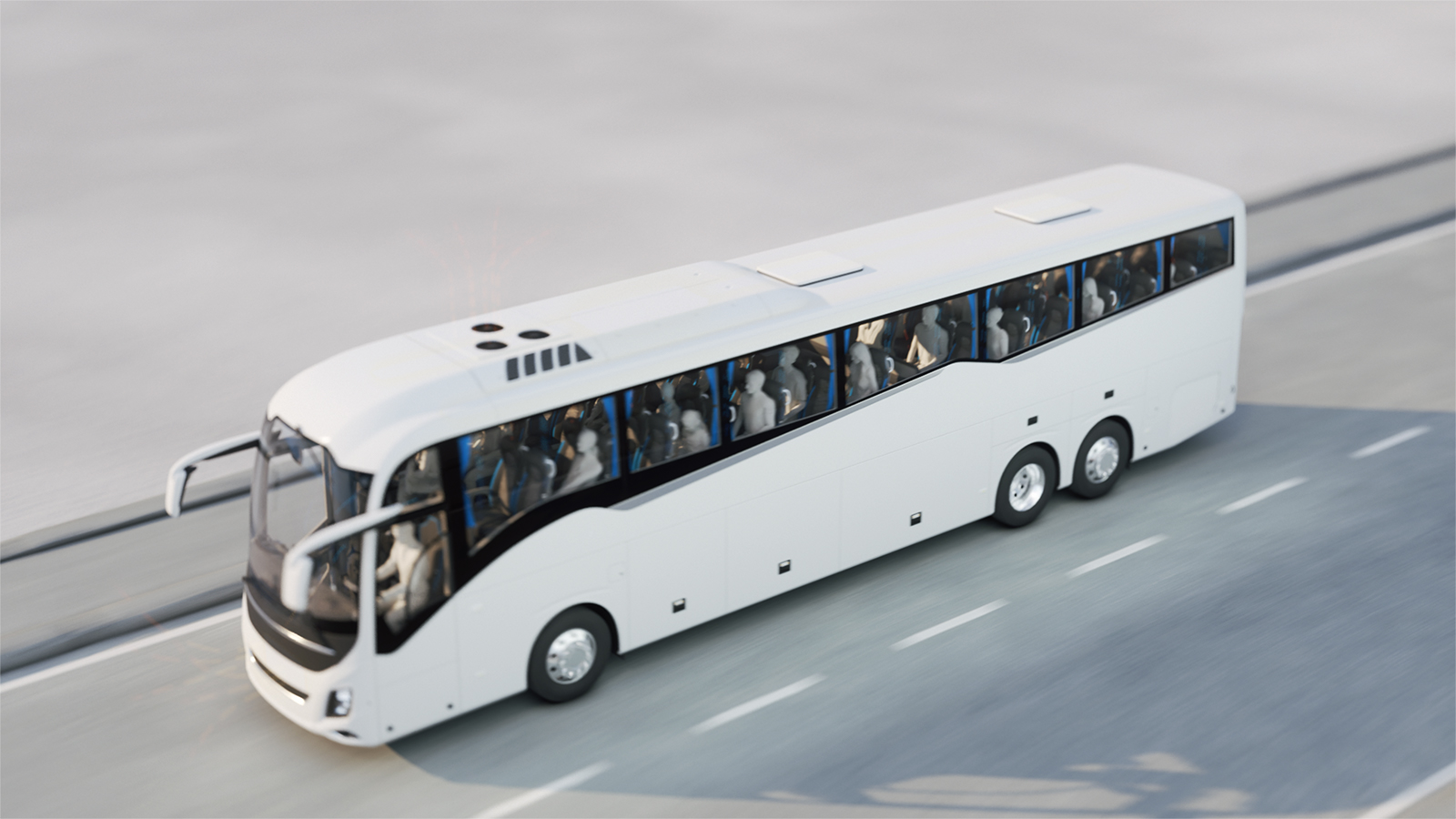Reducing aerosol concentration on buses
Disclaimer: Please note that the claims being made in the following communication only apply to European countries. For locations outside of the European Economic Area (EEA) you should first review local regulatory restrictions. For the USA, the product is not available until the pending registration with the United States Environmental Protection Agency (US EPA) has been completed.
With the SARS-CoV-2 virus still dominating world news and public discussion, sources of infection and how to protect against it remain a hot topic. One key area is public transportation, where people necessarily gather together in confined spaces: an ideal trading floor for aerosol exchange.

Reducing aerosol concentration on buses
Based on Freudenberg’s high-performance micronAir blue cabin air filters, the new filtration systems can remove virtually 100 % of particles from the circulating air in bus cabins. A unique anti-viral filter layer adds an effective shield against airborne aerosols that can potentially carry pathogens such as coronaviruses.
The solution was developed in a research project initiated by a coach operator from Vorarlberg, Austria, and conducted in close collaboration with the independent research and testing institute OFI and EvoBus GmbH. “The project was sparked and accelerated by the current coronavirus pandemic. However, shared confined spaces such as buses always place particularly high demands on air quality to minimize a variety of health risks for passengers and drivers alike”, explained Alexander Oelsner, whose job includes responsibility for bus filtration solutions at Freudenberg Filtration Technologies.
Unique three-stage progressive filtration design
The initial prototype was based on a three-stage filtration system: a front box filter to clean the air for the driver, a recirculation filter mat in the ceiling, and a third filter in the air conditioning unit on top of the bus; a double filtration solution to protect passengers. “The challenge was to reliably capture particles as small as 0.4 μm while keeping the air filter resistance to a minimum to avoid energy efficiency losses”, Oelsner commented. The result is a unique, holistic three-stage design in which all filters are carefully aligned with one another.
This multi-stage process significantly increases the efficiency of bus cabin air filtration. All micronAir blue filters have a dual mode of protection. As well as capturing particles as small as 0.4 μm, including airborne aerosols, they also feature a second anti-viral filter layer based on fruit extracts. When viruses hit this functional layer, their protein envelope is destroyed, thus rendering them harmless.


The response of bus manufacturers and transportation companies has been overwhelming. Thousands of vehicles are already being retrofitted with the new filters and they are becoming standard equipment on new buses. All new EvoBus buses now feature the new micronAir blue bus cabin filters.
While the pandemic propelled the desire for cleaner air in mass public transportation, the need has always existed. For this reason, we will work continuously to ensure that the need becomes a standard, as happened with the first automobile cabin air filter.
 automotive filtration insight
automotive filtration insight